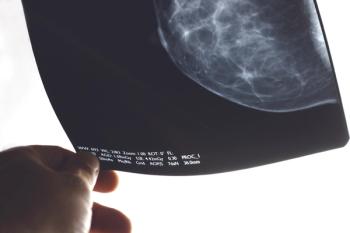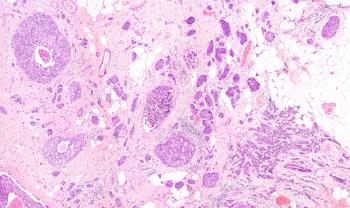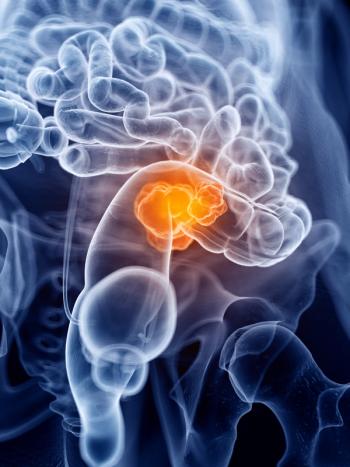
Oncology NEWS International
- Oncology NEWS International Vol 16 No 6
- Volume 16
- Issue 6
Peptide Binding May ID Early Responders to TKI Plus RT
Vanderbilt University researchers have developed a noninvasive technique for monitoring the response to treatment with tyrosine kinase inhibitors (TKIs) and radiation therapy (RT)
LOS ANGELESVanderbilt University researchers have developed a noninvasive technique for monitoring the response to treatment with tyrosine kinase inhibitors (TKIs) and radiation therapy (RT), they reported at the 2007 American Association for Cancer Research annual meeting (abstract 4657).
"We need a rapid and noninvasive system to inform us right away whether the tumor is responding to treatment," co-investigator Roberto Diaz, MD, PhD, a resident in radiation oncology at the Vanderbilt-Ingram Cancer Center, said at an AACR press conference. Principal investigator is Dennis Hallahan, MD, professor and chairman of the Department of Radiation Oncology at Vanderbilt University Medical Center.
The researchers used a phage-displayed peptide library (named for the bacteriophage viruses used to capture protein fragments) to screen lung and brain tumor xenografts being treated with radiation to determine which peptides were able to recognize specifically those tumors that were responding to the treatment. With this library, they could select peptides that bind to tumors being affected by combined treatment with TKIs and radiation and not to tumors that do not respond to therapy. Ultimately they isolated 44 peptides that appeared to serve as biomarkers for response.
To validate the biomarkers, they injected these peptides into mice being treated for various solid tumors. Using near-infrared resonance imaging, they observed within just 48 hours that the peptides bound most robustly to tumors responding to treatment. This finding was confirmed with immunohistochemical staining. This was consistent across several tumor types, including glioma and lung, breast, prostate, and colon cancer.
"Our study provides us with a starting point for understanding how tumors physiologically respond to therapy and a noninvasive technique for monitoring that response," Dr. Diaz said. His team hopes to employ this technology in phase I trials beginning in 2008.
Articles in this issue
over 18 years ago
ACS Launches Major Epidemiology Studyover 18 years ago
Pt Selection Key to Radioembolization of Liver Ca'sover 18 years ago
Million Dollar Gotham Prize Announcedover 18 years ago
Diagnostic Dilemma: GI Diseaseover 18 years ago
Junovan Fails to Win ODAC Nod for Osteosarcoma Treatmentover 18 years ago
Surveillance Colonoscopy Guidelines Not Being Followedover 18 years ago
Removing Stage IV Primary May Cut Mortalityover 18 years ago
Nuclear Export Inhibitors Testing Moving Forwardover 18 years ago
ODAC: orBec Yields No 'Substantial Efficacy' in GI GVHDNewsletter
Stay up to date on recent advances in the multidisciplinary approach to cancer.






































